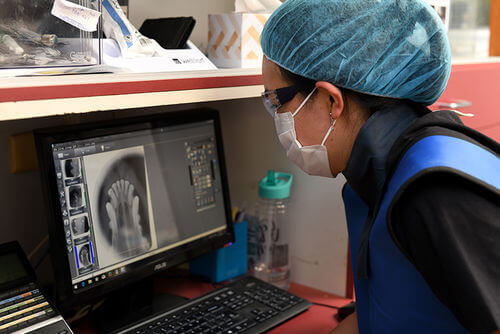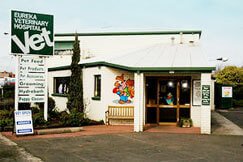After Hours
0408 512 323
Pet Dentistry at Eureka Veterinary Clinic
Healthy teeth. Happier pets.
 Good dental hygiene is just as important for our pets as it is for us. At Eureka Veterinary Clinic, we want your pet to feel their best — and that includes their mouth, teeth, and breath.
Good dental hygiene is just as important for our pets as it is for us. At Eureka Veterinary Clinic, we want your pet to feel their best — and that includes their mouth, teeth, and breath.
Dentistry is one of the fastest-growing areas in veterinary care, and for good reason. In the past 25 years, awareness of dental health and its impact on pets' quality of life has grown significantly.
Just like people, pets need regular dental care — not just for fresh breath, but for their comfort, health, and wellbeing.
Why dental health matters
Dental disease starts with a build-up of bacteria, saliva, and food particles that form plaque on the teeth. Over time, this plaque hardens into tartar, particularly around the gum line. If left untreated, this can lead to:
- Painful periodontal disease
- Gum inflammation and infection
- Tooth loss
- And even problems affecting the heart, liver or kidneys
Signs of dental disease in pets
You may notice:
- Yellow or brown tartar near the gum line
- Red, inflamed gums
- Bad breath
- Changes in eating or chewing
- Pawing at the face or mouth
- Drooling
- Bleeding or pain when touching the mouth
If you see any of these signs, we recommend booking a dental check with one of our vets.
What if my pet has dental disease?
 A professional approach under general anaesthesia
A professional approach under general anaesthesia
If your pet needs a dental treatment, a general anaesthetic is required. This allows us to:
- Thoroughly examine all teeth
- Chart and assess gum health
- Remove tartar using an ultrasonic scaler (just like a human dentist)
- Check below the gumline where true disease hides
- Perform any necessary tooth extractions with your pet completely pain-free
We often get asked about Non-Anaesthetic Dentistry (NAD). While it may improve appearance, it doesn’t address the root cause of disease — bacteria under the gums. It also causes unnecessary stress and discomfort to pets. That’s why we do not recommend or perform NAD.
Now offering: Staged Dental Procedures
At Eureka Vet, we understand that some pets have severe dental disease or may require multiple extractions — and in these cases, a single dental procedure may not be enough.
That’s why we offer a staged approach to dental care:
- Stage 1: Initial cleaning, full dental charting, and removal of clearly damaged teeth
- Post-op consult: Review healing and plan next steps
- Stage 2 (if needed): Follow-up procedure to complete extractions or perform more advanced treatments, often once inflammation has settled
This approach allows us to reduce time under anaesthesia, improve comfort, and achieve better long-term results — particularly in senior pets or those with complex dental issues. We’ll work with you to tailor a treatment plan that’s both safe and effective.
Aftercare and prevention
Following treatment, we’ll help you build a plan to slow down tartar build-up. This may include:
- Daily or weekly tooth brushing
- Special dental diets or chews
- Cartilage-based treats or raw meaty bones (when appropriate)
- A dental check-up every 6–12 months
Prevention is key, and we’re here to support you with advice that works for you and your pet.
We care for rabbits too
Dental disease in rabbits and guinea pigs is common but often overlooked. It can cause eye discharge, weight loss, mouth abscesses, and poor coat condition. Our team has the specialised equipment and experience to assess and treat dental disease in small mammals too.
Book a dental check today
If you have any concerns about your pet’s teeth or want to discuss a professional dental clean, we’re here to help.
📞 Call us on (03) 5333 5959
Let’s keep those tails wagging and those smiles sparkling.
CLICK HERE for available times and bookingsBOOK ONLINE >
Location





